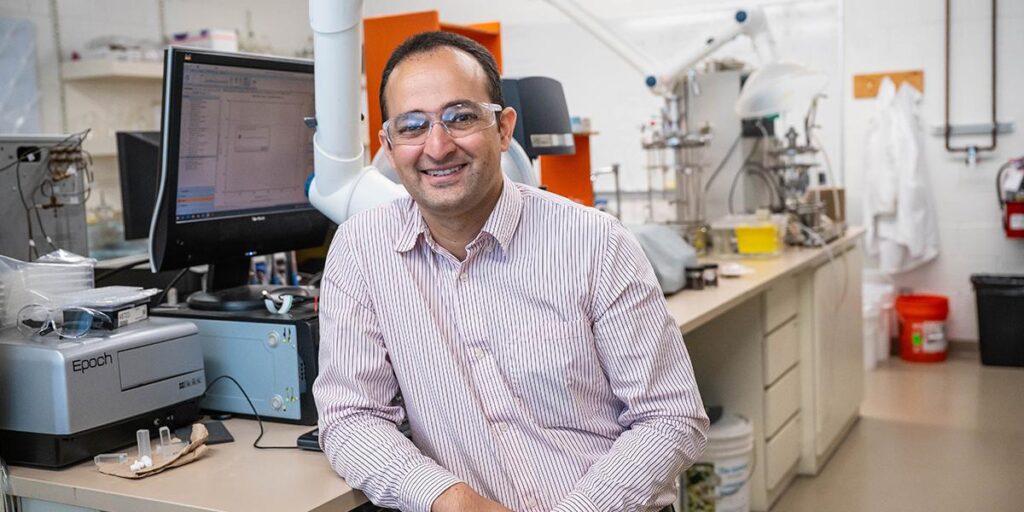Fuelling a sustainable solution to save energy and preserve food
This post is a summary of an article published by UBC Today. Link to the original article: https://ubctoday.ubc.ca/stories/october-16-2023/fuelling-sustainable-solution-save-energy-and-preserve-food
Dr. Hamid Rezaei (pictures below), a research associate in the Department of Chemical and Biological Engineering at UBC Vancouver, is recognized for his significant efforts to advance sustainability in natural resource processing. Throughout his career, Dr. Rezaei has been dedicated to finding eco-friendly and sustainable solutions to reduce waste from agricultural and food production operations and convert the generated waste into high-value renewable sustainable fuel as a commodity or commercial food products, with a focus on conserving and preserving natural resources.
Hailing from a region in northern Iran known for its farming and food industries, Dr. Rezaei’s background and family involvement in agricultural machinery and farming supplies shaped his deep appreciation for food and natural resources. He recognized the value that natural resources bring to society but was equally aware of the significant amounts of these resources that go to waste, along with the water and energy used in producing, processing, and transporting food. He describes this as a chain reaction that harms the environment.
Hamid joined the Biomass and Bioenergy Research Group (BBRG) at UBC in 2013, and strengthened his knowledge and experience, as well as contributed to research in chemical engineering, municipal waste processing, and waste to fuel/energy. He has spent over a decade conducting research to help upgrade the quality of abandoned and low-value forest and agricultural residues in Canada to renewable and sustainable wood pellets, and has made significant contributions in this space through his highly qualified personnel (HQP) training. Dr. Rezaei’s dedication to mitigating waste and conserving resources aligns with the broader goals of sustainability and environmental protection, making him a valuable contributor to these important efforts at UBC and Canadian society.

